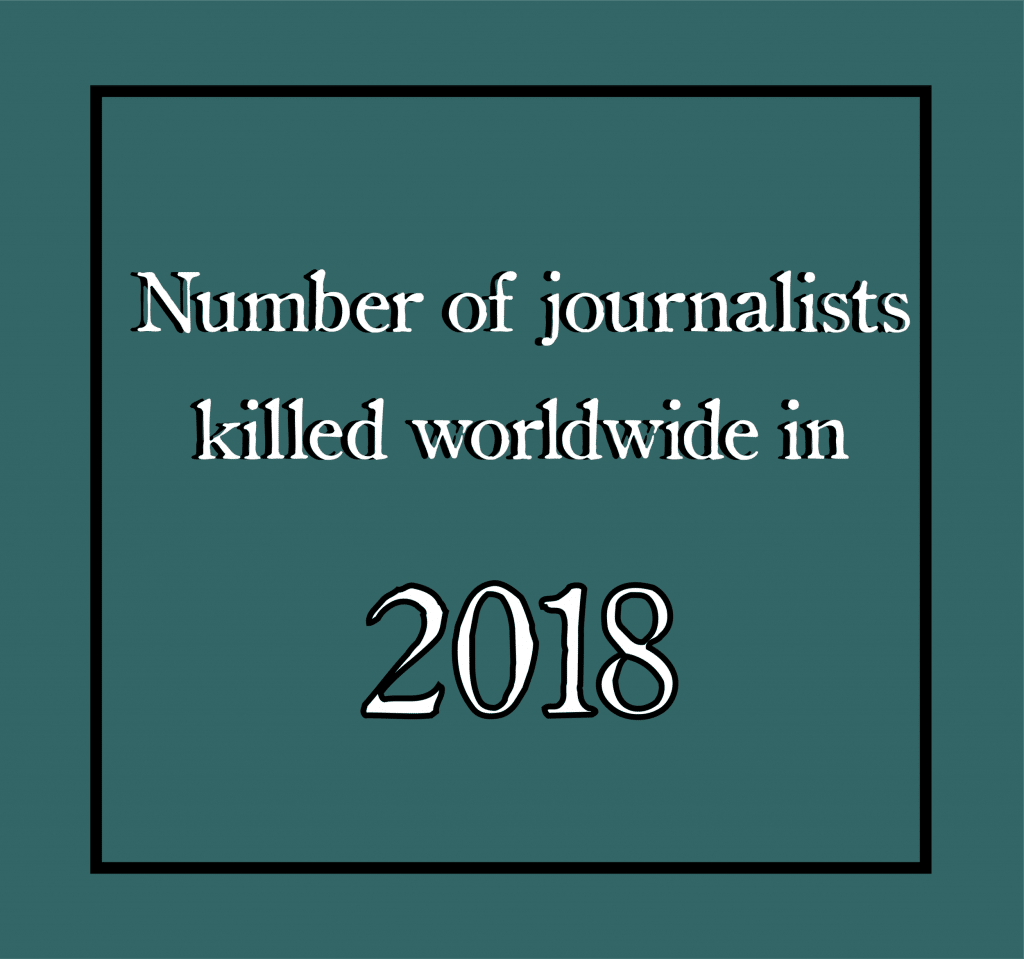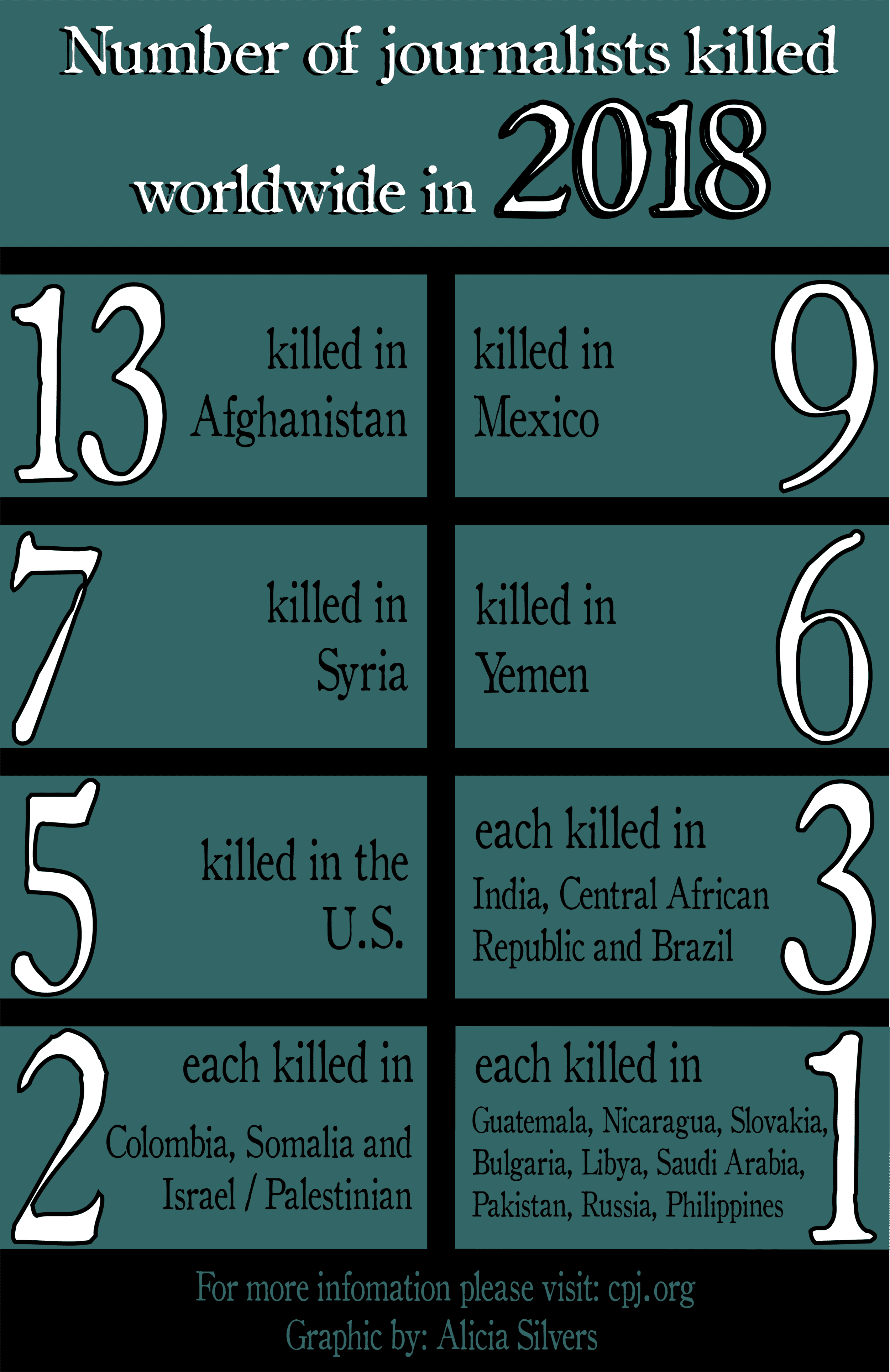
Journalists who risk everything for a headline
Joshua Boulet, Staff Writer
Many journalists will go to great lengths to get the story they want. Unfortunately, these journalists will sometimes be met with animosity and maybe even death to get to the bottom of world news.
Most recently, Jamal Khashoggi was killed in Saudi Arabia. The Turkish journalist was a known critic of the Saudi Arabian government and has gone there multiple times to do reporting. He entered the consulate on Oct. 2 , and was never seen again. Soon it was revealed that the was brutally murdered by someone within the country. After some time, the government eventually acknowledged that Khashoggi was murdered, but took very little responsibility for his death. His final article was never finished, but was still posted. The article pleaded for a more free press in the Arab world (the full timeline of Khashoggi�s death).
Another story is that of Jumpei Yasuda. He was a journalist who came from Turkey to Syria. His goal was to report on the Syrian Civil War that was occurring when he started there in 2015. In Syria, an extremist group known as Hayat Tahrir al-Sham kidnapped him. They held him for three years. They asked the Japanese government for a roughly 10 million dollar ransom, but they declined. Thankfully, he seemingly has been found and is going under the full process of identification.
Also, just because many journalists are killed by extremist groups or governments doesn�t mean every journalist is endangered in that way.
Several journalists for the BBC were investigating the murder of several children in Africa. They were searching for a group of witch doctors and the such when they were confronted by a mob with weapons. The mob thought that these journalists were the killers and starting attacking. Given that the killers were still rampant, there was reason for people to be somewhat antsy. In the end, the mob was interrupted and there were few physical injuries to the reporters (their full story).
Journalists being hurt or killed is nothing new and certainly isn�t exclusive to far off countries.
Elijah Parish Lovejoy was a journalist born in 1802. He lived an accomplished life, graduating college and even becoming a minister for the First Presbyterian Church. Things were going fine until the U.S. civil war arrived. Lovejoy wrote for the Alton Observer which was strongly abolitionist. Even after several presses were destroyed, we was devoted to publishing articles against slavery. The Alton Observer was guarding the installation of their new presses when a pro-slavery mob showed up. Bringing fire and weapons, the mob was able to easily overtake their defenses. Soon enough, Lovejoy was shot with a shotgun and fatally killed.
For some, they will risk their crime-free record to get a story. Many journalists in China have spoken up about major issues and been jailed for it, ruining their entire livelihood to report the truth. Huang Qi started a website chronicling Chinese human rights violations and ended up behind bars. Hu Jia was a award winning blogger but was also imprisoned from 2007-2011. Even under police surveillance, he was still beaten by unknown assailants and has faced major mental health issues since his time in prison (Source and other journalists� stories).
Whether it�s government suppression or groups of extremists, some journalists will face repercussions from extreme groups. Whether they deserve it or not, it�s still a risk that comes with reporting stories that certain groups don�t want known. For most, that may mean a certain company doesn�t send them information anymore. For others, the consequences are much more grave.

